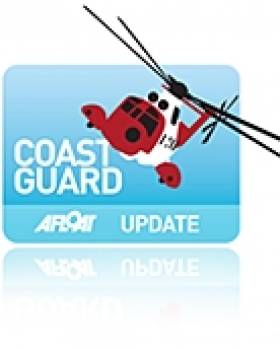Displaying items by tag: Reynolds
Seven New Coast Guard Boats in €2M Safety Programme
€1.5 million has been allocated for 7 new Coast Guard boats as part of its boat renewal programme;
€300,000 will be used to purchase new vans for the Coast Guard's volunteer rescue teams;
€200,000 will be used to update the Coast Guard's pollution response equipment to best international standards.
Separately, Minister Varadkar is backing an Irish Coast Guard initiative to have a new European Coast Guard Secretariat based full-time in Dublin.
Speaking today, Minister Varadkar said: 'I'm very happy to allocate extra resources to the Coast Guard to upgrade its vital equipment, including seven new boats, along with replacement vans and pollution control materials. One of the new Rigid Inflatable Boats (RIBs) has been allocated to Achill Coast Guard, and the remainder will be allocated to Coast Guard Stations around Ireland over the next 12 months, according to priority.
"Everyone who goes to sea owes a debt of gratitude to the Coast Guard, as do their family and friends. The Coast Guard responds to emergency call-outs, and saves lives, at all hours of the day and night, throughout the year. Much of the Coast Guard's work is only possible through the large network of individual and group volunteers."
Minister Varadkar also congratulated the Director of the Irish Coast Guards, Chris Reynolds, who has been elected the new Chair of the European Union Heads of Coast Guard. The annual Heads of Coast Guards of Europe's meeting will now take place in Dublin next August.
Mr Reynolds has been asked specifically to prepare the ground for a permanent Secretariat, manned by Coast Guard Officers from Member States, the EU Commission and various agencies. The Secretariat will meet in Dublin for its inaugural year, and Mr Reynolds will propose to have the Secretariat based in Dublin on a permanent basis.
Additional info:
New Delta 900 SUPER X RIBs for Irish Coastguard
The Irish Coastguard's new Delta 900 SUPER X Coast Guard RIBs are 9.00m overall and will be in service off the Republic of Ireland's coast.Jun 07, 2011 - From its early days in 1979, the Delta Power Group (builder of Delta RIBs) has grown to become one of the most successful and highly regarded designers and builders of commercial RIBs for the world market.
This enviable position has been achieved through a simple business philosophy. Delta has not burdened itself with debt to fuel growth, preferring to expand organically by concentrating on contracts that remain strictly within its targeted commercial sector, winning business from successful organisations; which in turn generates repeat orders and new contacts.
A recent Irish Coastguard contract is not for just one craft; but covers a five year programme to supply 12 highly specified boats. Delta's Military and Law Enforcement range comprises nine models and these are offered with different specifications depending on usage.
The Irish Coastguard's new Delta 900 SUPER X Coast Guard RIBs are 9.00m overall and will be in service off the Republic of Ireland's coast. Twin Yamaha F225B engines give a maximum speed of 40 knots and a cruising speed of 32 knots. Safety equipment is to MSO P6 Passenger Boat and other equipment is to MCA Category 3 rating. The extensive specification includes Shockwave mitigating seating for all the crew. And it also features Delta's standard procedure of terminating all wiring looms in fully waterproof housings with Deutsch connectors to ensure maximum in service reliability; essential, since the Irish Sea and Atlantic Ocean can throw up very demanding operational conditions.
In addition, Delta is one of the few major Commercial RIB builders to run the processes of laminating, tube making and outfitting completely 'in house' (on its wholly owned and secure 2.2 Acre freehold site) in 79,000 sq.ft of covered space. This ensures maximum Management and Quality Control. Delta is certified to ISO 9001: 2008 and is able to build under full survey of all the major Classification Societies.
As a result, Delta's extensive international client base now includes ERRV, Marine Police, Border Control, Customs & Excise, Navies, Special Forces, Coastguards, Search & Rescue services, Law enforcement agencies, Military and Port Authorities; to name just a few.

























































